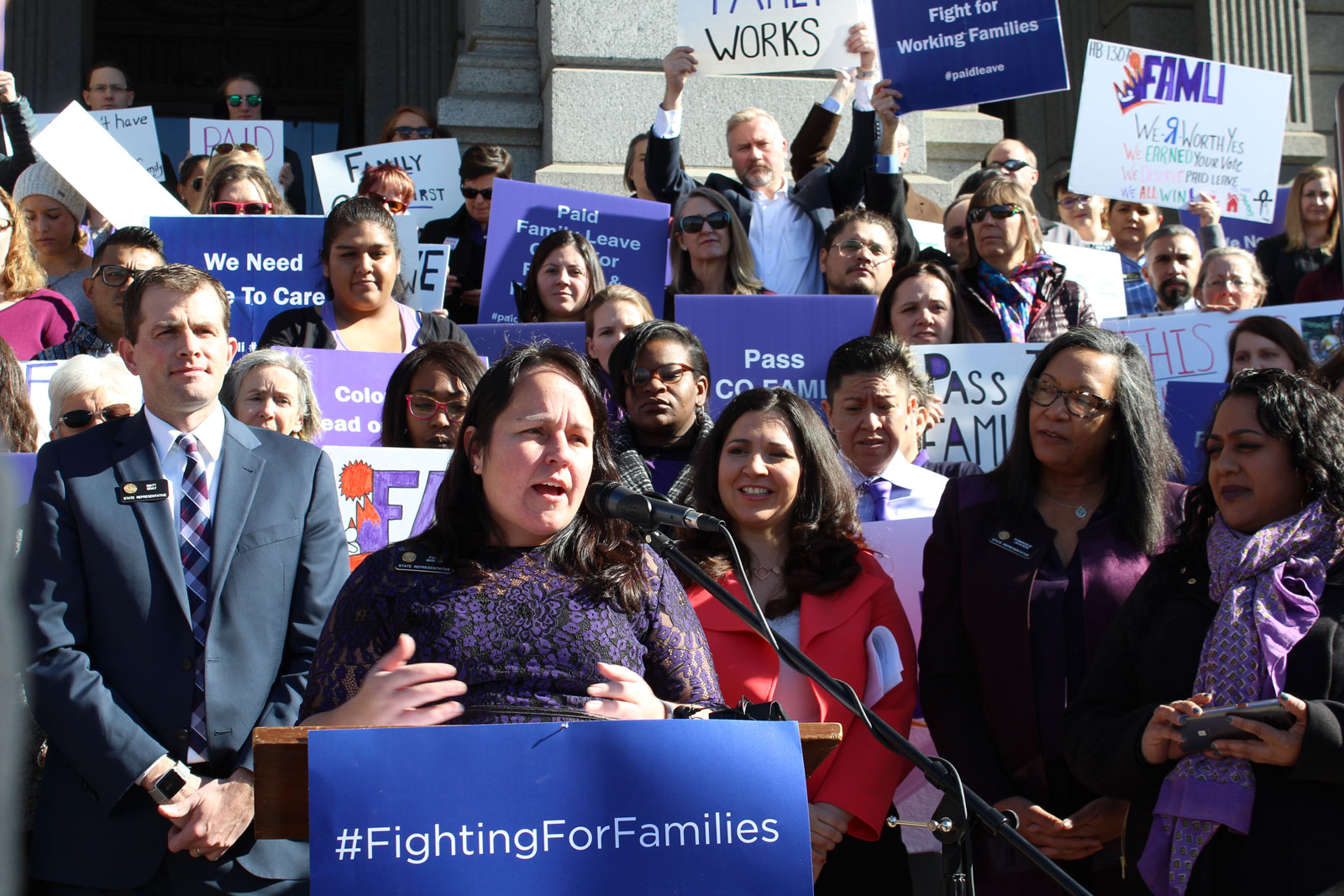The Local newsletter is your free, daily guide to life in Colorado. For locals, by locals.
This week marks the 25th anniversary of the federal Family and Medical Leave Act (FMLA), which guarantees 12 weeks of unpaid leave to workers at companies with more than 50 employees. So, it’s fitting that Colorado state legislators are marking this milestone by pushing for more family-friendly policies at a local level.
The United States is the only industrialized nation without paid family leave, and only four states—California, New Jersey, Rhode Island, and New York—offer their own solutions. Yet the world—and the workforce—have changed over the past few decades, points out State Rep. Faith Winter (D-Westminster). She’s co-sponsoring the FAMLI Family Medical Leave Insurance Program, which passed the House Business Affairs and Labor Committee Tuesday on a 7–6 vote and is now before the House Finance Committee.

The legislation creates a statewide social insurance program (similar to unemployment) funded by workers, and would include companies of all sizes (unlike FMLA). Employees would contribute a small premium based on a percentage of their annual wages and could take up to 12 weeks of partially-paid leave to care for themselves or a loved one. Employers would have to provide job protection, but can save the money that they would have otherwise spent on a worker’s salary to pay for overtime for other employees, hire temporary workers, or invest in their businesses, Winter says.
In the Centennial State, FMLA is inaccessible to about two-thirds of working Coloradans, according to a report by the National Partnership for Women and Families, either because they work for small businesses or simply can’t afford unpaid time off work. At the same time, caregiving needs are growing. More women are in the workforce, some 70 percent of Colorado households with children have two working parents, and the share of Coloradans age 65 and older will grow by a third in just 15 years.
“We’re looking at those pressure points and trying to alleviate them a little bit,” says Winter. She points out that one in four mothers return to work within two weeks of giving birth. And according to Pew Research, over half of Americans who take parental leave take less time off from work than they need or want to.
In a hearing that lasted several hours Tuesday, Coloradans told stories of being forced to choose between caregiving and a paycheck: A 10-year-old girl and her 16-year-old sister, who was working a minimum wage job, cared for a mother with breast cancer while asking friends for food. A military veteran’s wife had only two weeks of paid leave to care for her husband with brain cancer. A worker was forced to go on public assistance while undergoing medical treatments.
Legislators on the committee agreed on the problem, but were split on party lines over the solution, which largely pits paid leave advocates against small businesses. Research shows that companies offering paid leave can benefit from reduced turnover and training costs, higher engagement among employees, and by attracting new talent. But at Tuesday’s hearing, small business representatives from Grand Junction testified to the difficulty of finding temporary talent in less populated areas of the state—especially for highly skilled positions. Winter notes that getting businesses on board is critical. “The biggest obstacle is really having a conversation with the business community about how this is going to be implemented,” she says.
Winter sponsored similar legislation last year that passed the House, but not the Republican-controlled Senate. This year, she’s hopeful the tide may be changing. In a change from last year’s opposition, the National Federation of Independent Business (NFIB) is taking a neutral position on the FAMLI Act to reflect a split among members, Winter says. President Trump also advocated for a national paid leave policy during his first State of the Union last week, where he said: “Let’s support working families by supporting paid family leave.”
Whether that support will be echoed by Republicans in the Colorado statehouse is still uncertain. “I’m glad that it’s part of the national conversation for both parties,” says Winter. “Oftentimes when momentum turns outside of the building, then momentum turns inside of the building.”








